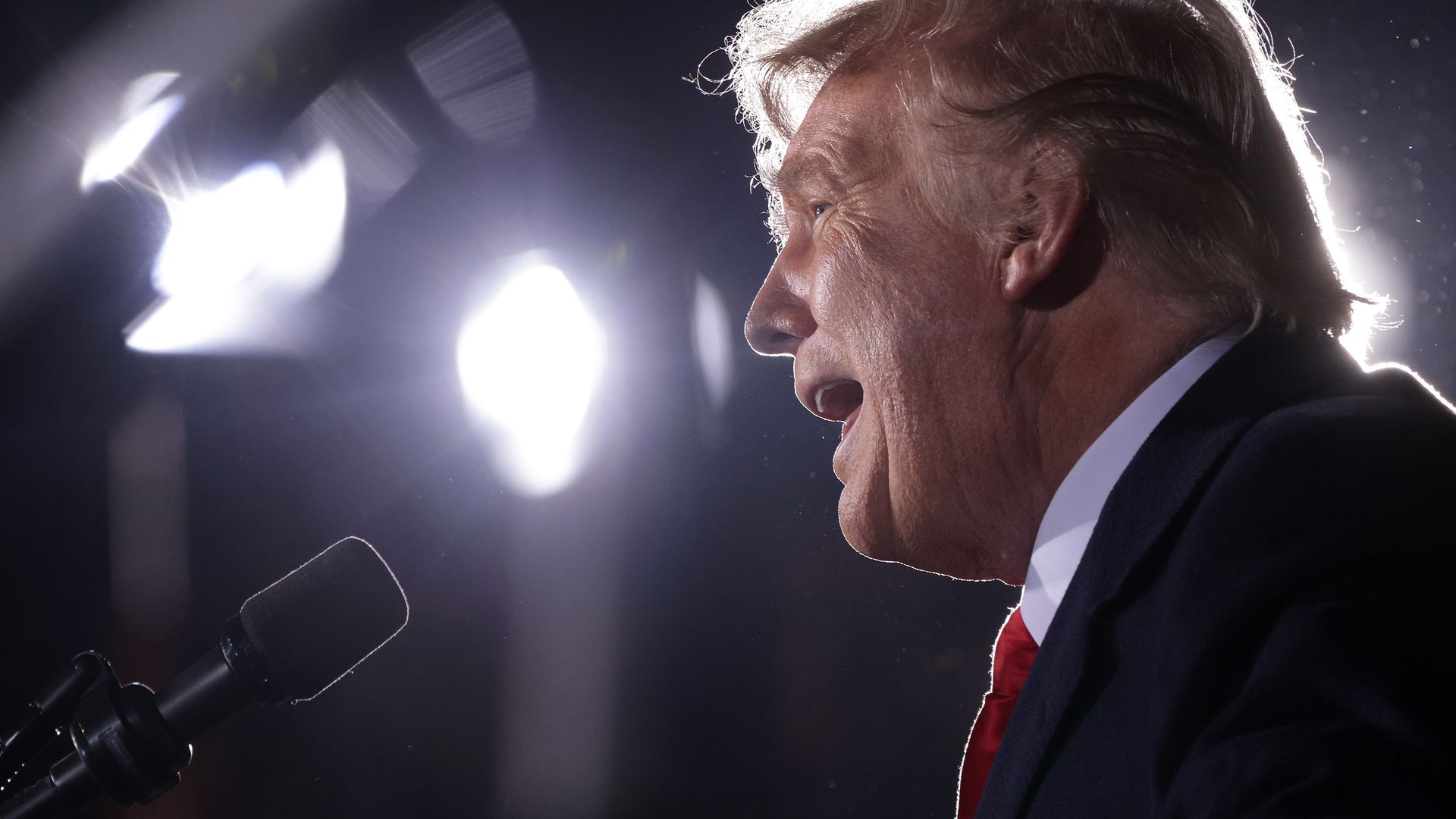Trump bans transactions with eight Chinese software apps
Add Axios as your preferred source to
see more of our stories on Google.

Trump speaking at a rally in Dalton, Georgia, on Jan. 4. Photo: Alex Wong/Getty Images
President Trump signed an executive order Tuesday that prohibits transactions with eight Chinese software applications, claiming they pose a national security threat given their ability to access private information about their users.
Why it matters: The order comes two weeks before Trump leaves office, and it remains unclear whether President-elect Biden will continue enforcing Trump’s bans on Chinese companies.
The order bars any transactions with “persons that develop or control” the apps of Alipay, CamScanner, QQ Wallet, SHAREit, Tencent QQ, VMate, WeChat Pay, WPS Office and its subsidiaries after a 45-day period.
- Payment platform Alipay is owned by Jack Ma's Ant Group, and WeChat Pay is owned by Tencent.
- The order also requires Commerce Secretary Wilbur Ross to consider bans on other apps that are deemed national security threats, and calls for the commerce secretary, attorney general and director of national intelligence to release recommendations to prevent the transfer of data from U.S. users to foreign adversaries.
The big picture: Tuesday's order is a continuation of the Trump administration's campaign against Chinese companies.
- Last year Trump issued orders banning two other popular Chinese-owned social media services, TikTok and WeChat, claiming they could be used for Chinese espionage and pose a national security risk to the American people.
- He signed another in November prohibiting American companies and individuals from owning shares of companies previously listed as enabling the People's Liberation Army.
- The New York Stock Exchange moved to delist three Chinese companies to comply with that order before reverting that decision on Monday.
Our thought bubble, via Axios' Ina Fried: The apps, essential for many transactions within China, are also key for those with relatives or business there.
What they're saying: "The Chinese government requires that all commercial companies, big and small, support the Chinese Communist Party’s political objectives as Chinese regulators have recently demonstrated," national security adviser Robert O’Brien said in a statement Tuesday regarding the order.
- "China’s Military-Civil Fusion strategy explicitly aims to co-opt or coerce civilian enterprises into assisting the People’s Liberation Army."
